Xi meets Putin in Kazan, Russia
Chinese President Xi Jinping met Tuesday with his Russian counterpart, Vladimir Putin.
Xi arrived in Kazan earlier in the day for the 16th BRICS Summit.
Chinese President Xi Jinping met Tuesday with his Russian counterpart, Vladimir Putin.
Xi arrived in Kazan earlier in the day for the 16th BRICS Summit.
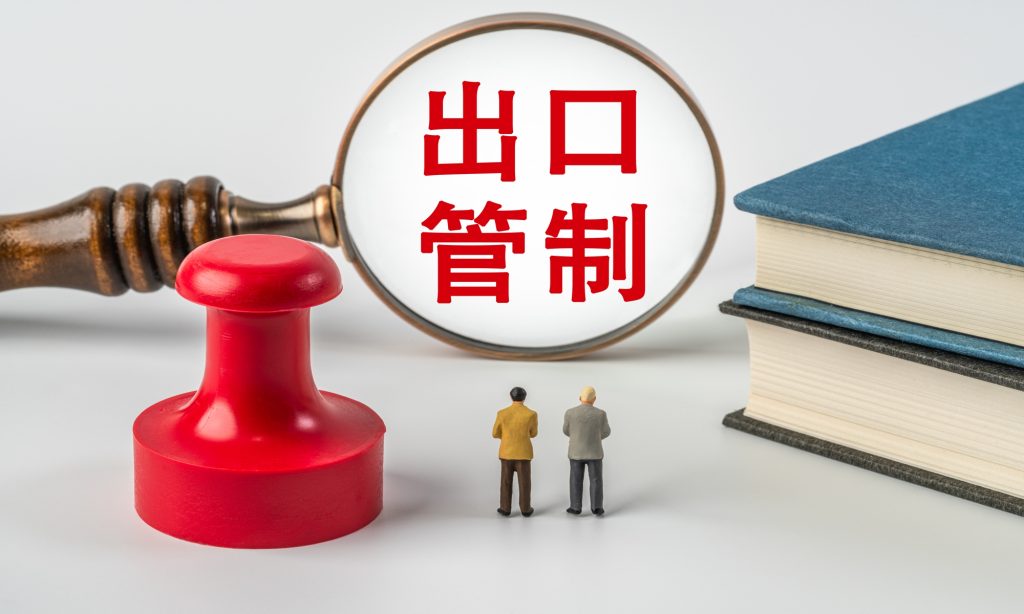
"Civil-military dual-use goods, technologies, and services that, if misused after export, could endanger national security and affect world peace and security. Dual-use items export control measures are in line with international norms," He Yadong, a spokesperson for China's Ministry of Commerce (MOFCOM) said on Thursday.
Regarding a question on dual-use items, He clarified that dual-use items mean goods, technologies and services that may be used either for civil purposes or for military purposes or to contribute to an increase in military potential, especially to design, develop, produce or use weapons of mass destruction and their means of delivery.
"The introduction of the Regulations of the People's Republic of China on Export Control of dual-use items is a refinement of China's Export Control Law. The regulations are an important measure to improve the export control system and enhance legal governance in export control of dual-use items. The transparency and standardization of export control policies for dual-use items will be enhanced," He noted.
A State Council decree unveiling the regulations on export control of dual-use items was signed in September, according to a notice published by the State Council on October 19. The dual-use items export control regulations will take effect on December 1, 2024.
"For more details on the background, approach, and key provisions of the regulations on the export control of dual-use items, please refer to the answers provided by officials from the Ministry of Justice (MOJ) and the MOFCOM to journalists' questions, which are available on official websites," said He.
On Saturday, the MOJ and the Ministry of Commerce stressed that export controls are not a prohibition on exports. Dual-use items export control measures are in line with international norms, and they will help ensure trade security while promoting the normal trade of dual-use items.
The regulations will not pose obstacles to normal international scientific and technological exchanges and economic and trade cooperation, or disrupt the smooth operation of global industrial and supply chains, the two ministries said.
The regulations also include detailed measures for license management, control list and supervision of export control of dual-use items, according to the Xinhua News Agency.
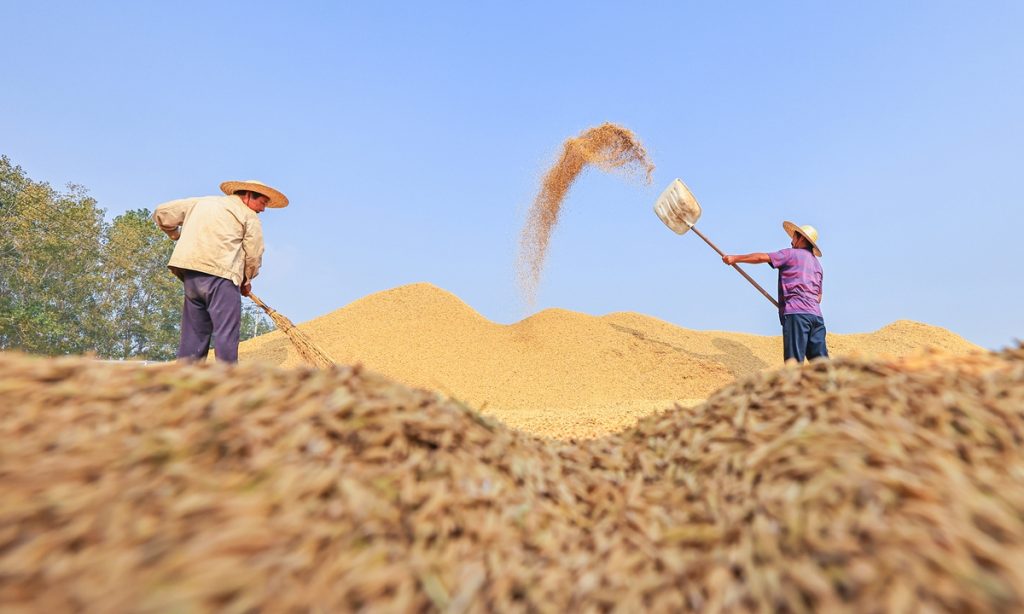
The autumn harvest is currently in full swing across China, the largest food producer and third largest food exporter in the world.
Autumn grain is the main component of annual grain production, accounting for about three-quarters of the total grain output for the year. It is crucial for securing the Chinese people's "rice bowl."
Bustling farmers can be seen in fields across the nation, promising a fruitful year during the golden days of October. In East China's Jiangsu Province, autumn grain area exceeds 44.7 million mu (2.98 million hectares), continuing to increase compared to the previous year; In Northwest China's Xinjiang Uygur Autonomous Region, cotton harvesting has also kicked off. According to the latest report, the overall cotton yield in Xinjiang this year will increase by five percent to 10 percent compared to last year; In Southwest China's Sichuan, the harvesting of 28 million mu of rice and 22 million mu of spring corn is nearing completion.
In total, more than 64 percent of the autumn food crops in China have been harvested, reflecting a pace that is 1.1 percentage points faster than anticipated, the Chinese Ministry of Agriculture and Rural Affairs said on Tuesday.
The importance of food security for the development and happiness of people's lives was reiterated on World Food Day, which fell on Wednesday.
The theme of this year's World Food Day is "Right to foods for a better life and a better future." It aligns with China's consistent emphasis on food security as the country feeds over 1.4 billion people with only nine percent of the world's arable land. Food security is listed as one of the eight priority areas of cooperation in China-propopsed Global Development Initiative.
An array of measures have been implemented to improve grain output over the past few years, including building more high-standard farmland and promoting agricultural technology, according to the Xinhua News Agency.
High-standard farmland is characterized by well-leveled, contiguous plots with advanced irrigation, efficient water use and enhanced soil fertility. Designed to withstand both droughts and floods, it aligns with modern agricultural practices and features pollution-free soil and high yields, according to Xinhua.
According to a report submitted to a legislative session in September, China had developed over 1 billion mu (about 66.7 million hectares) of high-standard farmland by the end of 2023, with 13 key grain-producing provincial-level regions accounting for around 70 percent of the total, Xinhua reported.
In recent years, the country has also been providing emergency food assistance to countries suffering from natural disasters and humanitarian crises, and actively sharing agricultural know-how and technology to help developing countries enhance food production, Mao Ning, spokesperson of the Chinese Foreign Ministry, noted at a press conference on Wednesday.
China stands ready to work with all sides to enhance food security cooperation and strive for a world free of hunger, Mao said.

Chinese social media has emerged as a new arena for some Australian politicians to gain more popularity in the ongoing council elections in Melbourne.
After Victorian Electoral Commission sending people who are enrolled to vote a ballot pack in early October, voters are expected to post back their completed ballot papers by October 25, according to Melbourne’s government website.
Multiple mayoral candidates are going all out to win the support of the significant Chinese population by distributing bilingual campaign flyers in both Chinese and English, actively participating in various Chinese community events and even leveraging Chinese social media platforms to share their campaign visions and connect with the electorate.
Enthusiastic interaction
Unlike in state and federal elections, many non-Australian citizens who meet certain requirements are eligible to vote in the Melbourne City Council elections. The electorate includes international students, anyone on a working holiday visa, those who own a property in the city and live in it, and business owners, according to Australian media outlet ABC News.
To connect with one of the city’s most significant demographic groups, current Lord Mayor Nick Reece and challenger Arron Wood have both opened accounts on Little Red Book, or Xiaohongshu, a popular Chinese social media platform.
In an exclusive interview with the Global Times, Reece explained his motivation for joining Xiaohongshu. “As Lord Mayor of Melbourne, it is vital to connect with all communities in the city, and the Chinese community is a significant part of Melbourne’s cultural and social fabric,” he stated.
Since opening his account, Reece has shared dozens of videos and posts, amassing a following of over ten thousand users who expressed their eager to engage with his vision for the city. Some of his posts feature recommendations for local food, restaurants, and a great spot to play basketball in Melbourne.
Reece shared with the Global Times a touching moment, explaining how a Chinese student expressed gratitude for the support provided to international students studying in Melbourne during difficult times.
On the other hand, Wood has also made his marks on Xiaohongshu, expressing his belief that Melbourne has lost its way under the current administration.
“Melbourne is a great city, but there’s no doubt our city has gone backwards over the past four years, under the leadership of Reece... It’s clear we need new leadership... It’s time for action, not more empty promises,” Wood said in an exclusive reply to the Global Times.
“The success of Melbourne depends on the strength of its diverse communities, and the Chinese community has contributed so much to Melbourne over so many years... Whether it’s the historic Chinatown or the many Chinese businesses that boost our local economy, their influence is felt everywhere,” he said.
Both candidates have laid out ambitious plans for their potential terms in office, particularly concerning the Chinese community. Reece aims to enhance language accessibility in public services, support Chinese businesses and strengthen cultural exchange programs. He said he is particularly proud to have the oldest Chinatown in the city and is committed to ensuring it remains a bustling precinct just as it was 170 years ago. Also, he promised to ensure strong Chinese Australian voices to be part of his council team.
Wood has also introduced initiatives including tackling the cost-of-living crisis, enhancing city safety and cleanliness, and promoting cultural diversity. Wood vows to expand the free tram zone to make transportation more affordable for all, and provide greater support to small business owners, many of whom are vital to the economic and cultural fabric of Melbourne’s Chinese community.
Their presence on the Chinese social media has gained floods of enthusiastic feedback from Chinese netizens. A Xiaohongshu user based in Melbourne shared flyers of multiple candidates that are printed in Chinese, and said the Chinese community is becoming stronger.
Many Xiaohongshu users also left suggestions regarding how to build a better Melbourne. For example, an international student who is about to complete her undergraduate studies in Melbourne highlighted safety concerns, and hopes that more security measures in the city will be implemented.
Vital Chinese community
With a rich tapestry of culture and a growing population, Chinese voters represent a vital demographic in the city’s electoral landscape.
Data by the State Government of Victoria shows that the Chinese community in Victoria is the second largest in Australia. There are 427,811 people in Victoria who have Chinese heritage, of which 171,447 were born in China. Among them, Melbourne, the capital of Victoria, has the third largest Chinese community, with 34,469 people.
With the recent improvement in China-Australia relations, many Australian politicians are eager to cultivate a positive image among the Chinese populace in and outside Australia, said Chen Hong, executive director of Asia Pacific Studies Center at East China Normal University.
It is encouraging to see more politicians in Australia adopting a rational and pragmatic approach to their exchanges with China, Chen said. “This stands in stark contrast to anti-China political figures in certain countries that frequently smear Chinese social media platforms,” he said.
He believes the ongoing people-to-people exchanges can significantly contribute to the overall warming and improvement of relations between the two countries.
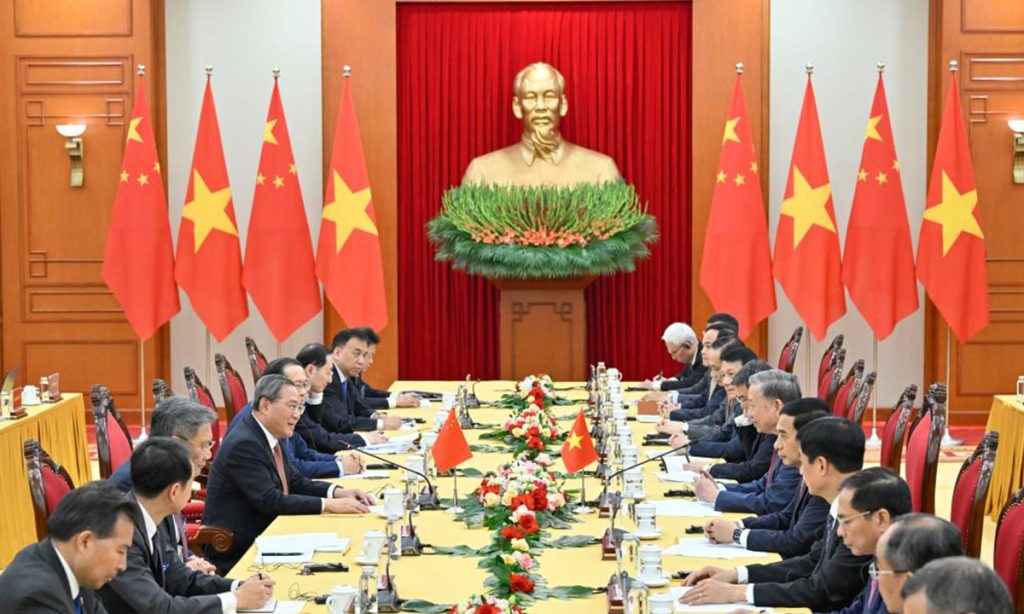
China stands ready to promote high-quality and high-level cooperation in various fields with Vietnam and is willing to continue to make bigger the pie of economic and trade cooperation, said Chinese Premier Li Qiang who is on a three-day official visit to Vietnam.
When meeting with To Lam, general secretary of the Communist Party of Vietnam Central Committee and Vietnamese president, on Saturday, Li conveyed the cordial greetings of Xi Jinping, general secretary of the Communist Party of China Central Committee and Chinese president, to To Lam, saying that in August this year, the top leaders of the two parties and countries held a meeting in Beijing and made a strategic plan for promoting the building of a China-Vietnam community with a shared future, which charted the course for the development of bilateral relations, according to the Xinhua News Agency on Sunday.
With the political guidance of top leaders from both nations, frequent high-level interactions have deepened political trust, promoting long-term, stable, and healthy development of bilateral relations and pushing them to a higher level. This will also inject greater momentum into economic, social, and civil exchanges and cooperation between the two nations, observers hailed on Sunday.
Frequent, high-level, and high-quality interactions underscore the significance both sides place on their amicable relations, Gu Xiaosong, dean of the ASEAN Research Institute of Hainan Tropical Ocean University, told the Global Times on Sunday.
Concrete actions
Li pointed out that China stands ready to solidify the six major goals of greater political mutual trust, more substantive security cooperation, deeper practical cooperation, more solid popular foundation, closer multilateral coordination and collaboration, and more proper management of differences, Xinhua reported.
Li expressed hope that the two sides will simultaneously promote the "hard connectivity" of railway, expressway and port infrastructure and the "soft connectivity" of smart customs to provide solid support for improving the facilitation of trade and investment and safeguarding the stability and smooth flow of industrial and supply chains.
Li also said China is willing to actively study the pilot construction of cross-border economic cooperation zones, expand cooperation in emerging fields such as information technology, new energy, digital economy, and important minerals, and deepen cultural exchanges.
China stands ready to carry out cooperation under the three major global initiatives, jointly promote the building of an equal and orderly multipolar world and a universally beneficial and inclusive economic globalization, and maintain and promote prosperity and tranquility in Asia, Li said.
Cooperation in infrastructure development is a key and exemplary sector of China-Vietnam collaboration. In addition to directly driving the development of border regions and ports on both sides, it creates positive spillover effects in markets and investment, boosting the creation of a China-Vietnam community with a shared future, Ding Duo, a deputy director of the Institute of Maritime Law and Policy at China's National Institute for South China Sea Studies, told the Global Times on Sunday.
Both countries continue to strengthen bilateral relations through concrete actions, particularly in areas such as trade cooperation and regional connectivity. The construction of a cross-border railway, for instance, will enhance cooperation between China and Southeast Asia, Gu said.
China is the biggest trading partner of the Vietnam, with the bilateral trade exceeding $200 billion for three years in a row, and reaching $145.07 billion from January to July in 2024, a year-on-year increase of 20.9 percent, according to China's Ministry of Commerce.
For his part, To Lam asked Li to convey his sincere greetings to Xi, and warmly congratulated the 75th anniversary of the founding of the People's Republic of China.
The Vietnamese side will firmly follow the path jointly set by the top leaders of the two parties and the two countries, adhere to the six major goals, deepen the Vietnam-China comprehensive strategic cooperative partnership, and promote the building of a Vietnam-China community with a shared future that carries strategic significance.
He noted that Vietnam firmly abides by the one-China principle and firmly opposes all forms of "Taiwan independence" separatist activities.
Vietnam is the second stop of Li's ongoing Asia tour. Prior to this, he visited Laos, where he participated in a series of leaders' meetings on East Asia cooperation and conducted an official visit to the country, according to Xinhua.
According to the Vietnamese government website, Prime Minister Pham Minh Chinh hosted an official welcome ceremony for Chinese Premier Li Qiang at the Presidential Palace in Hanoi on Sunday.
In his meeting with Vietnamese Prime Minister, Li urged both sides to stick to friendly consultation, properly handle differences and expand maritime cooperation. In response, Pham Minh Chinh said the two sides should implement the high-level consensus of the two parties and two countries, properly manage differences through friendly consultation, and jointly safeguard maritime peace and stability.
Vietnam and China signed 10 agreements ranging from agriculture cooperation to cross-border QR code payments on Sunday, according to Vietnamese government website. The two countries also signed a document on updating progress on cross-border railway links related to site survey. The signing ceremony followed Li's meeting with Vietnamese Prime Minister Pham Minh Chinh.

Taiwan regional leader Lai Ching-te's "Double Ten" speech, pushing the "two-state" rhetoric, employs "backdoor listing" tactics to advance the agenda of "Taiwan independence," which could severely poison cross-Straits relations and escalate tensions, mainland scholars said at a seminar held on Friday.
The Institute of Taiwan Studies of Tsinghua University held a seminar on UN General Assembly (UNGA) Resolution 2758 and the one-China principle, with many scholars rebuking Lai's recent secessionist remarks that carried schemes of "de jure independence." They also urged Taiwan compatriots and the international community to fully recognize the harm that stubborn "Taiwan independence" separatists could inflict on the island and regional stability.
On Thursday - October 10, a public holiday on Taiwan island that was originally meant to commemorate the 1911 Revolution - Lai delivered a speech that has been widely criticized by the mainland and people in the island. He claimed that the People's Republic of China has no right to represent Taiwan and they are "not subordinate to each other."
Lai's recent public speeches, including the "Double Ten" speech, have reinforced and consolidated his "Taiwan independence" rhetoric, with the aim of dismantling the legal basis of both sides of the Taiwan Straits belonging to one China. His reaffirmation of the "two-state" rhetoric, claiming the two sides are "not subordinate to each other," is essentially a backdoor listing plot to disguise the idea of "Taiwan independence," Xie Yu, an expert from the China Institute of Contemporary International Relations, said at the seminar.
Zheng Jian, a professor at the Taiwan Research Institute of Xiamen University, said at the Friday seminar that Lai continues to push the new "two-state" rhetoric using insidious tactics, in an attempt to stir up anti-mainland sentiment in the island and align with international anti-China forces' plan to contain China.
From his May 20 inaugural speech and subsequent remarks, it is clear that Lai's stance on "Taiwan independence" is deeply entrenched. His claims of "peace," "democracy," and "goodwill" are deceptive, his brinkmanship dangerous, and his pursuit of "independence through foreign support" opportunistic, Zheng said.
Many scholars criticized Lai as a "true war instigator," "peace disruptor," and "troublemaker" for the dangers his secessionist actions and remarks pose. Some said that Lai is steering Taiwan island toward conflict by undermining the 1992 Consensus, severing the shared national and ethnic identity across the Straits, and fostering hostility and confrontation.
The "Taiwan independence" separatist forces, in collusion with external anti-China forces, are attempting to challenge the one-China principle and distort UNGA Resolution 2758 in an effort to fabricate a "legal basis" for "Taiwan independence," Wu Yongping, director of the Institute of Taiwan Studies, Tsinghua University, told the Global Times on Friday.
"Taiwan independence" will not be tolerated under any circumstances, and it is not surprising to see firm countermeasures from the mainland in response to provocations, said Wu.
Wu also urged the people of Taiwan to fully recognize the harm that "Taiwan independence" secessionists could bring to the peace and stability of the island. He further noted that certain countries should avoid sending misleading signals to "Taiwan independence" separatist forces.
Chen Binhua, a spokesperson of the State Council's Taiwan Affairs Office, said in a statement on Thursday that Lai's speech continued to propagate the new "two state" theory and fabricate "Taiwan independence" fallacies. It has deliberately heightened tensions and gravely undermined peace and stability in the Straits.
Noting that the future of Taiwan lies in national reunification, Chen said that nothing Lai has said can change Taiwan's legal status as a part of China or the fact and status quo that both sides of the Taiwan Straits belong to one China.
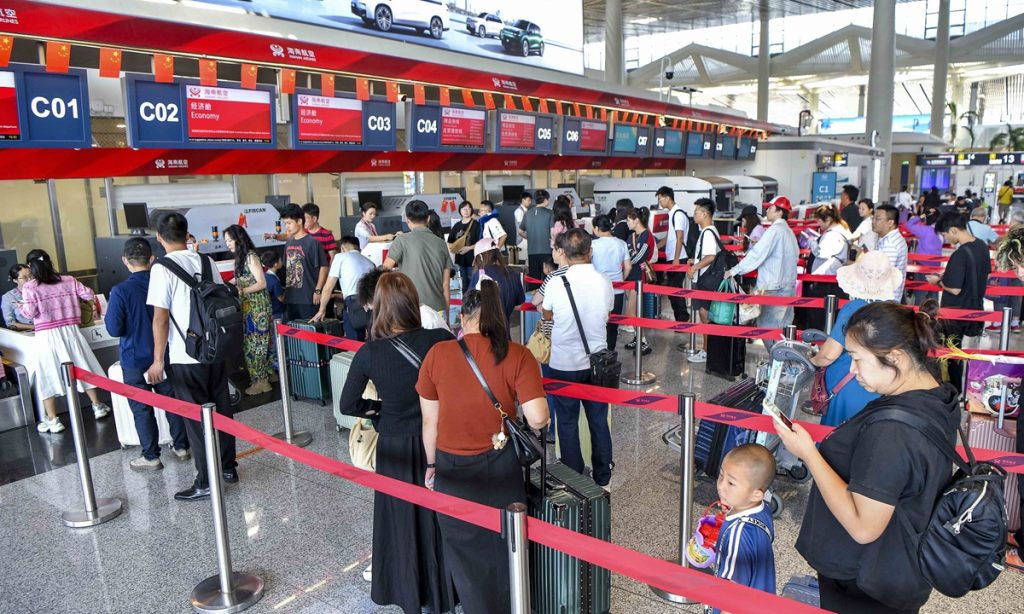
Business activity in multiple border cities across China was ignited during the weeklong National Day holidays, with cross-border visitor trips and consumption both increasing significantly.
Observers attributed the prosperity to the country's upgraded infrastructure and services, which facilitate transportation for both domestic and foreign tourists, as well as the ongoing positive impact of the consumption peak nationwide.
As of 5 pm on Saturday, more than 70,000 people had entered and exited Hekou port in Kunming, Southwest China's Yunnan Province during the National Day holidays, a year-on-year increase of 15.4 percent, per CCTV.
In the first four days of the National Day holidays, China's Fuyuan port in Northeast China's Heilongjiang Province recorded 1,860 inbound and outbound cross-border passenger trips, up 143 percent year-on-year, according to China News Service.
In the consumption sector, the number of people entering and exiting the China-Kazakhstan international border cooperation center in Khorgas in Northwest China's Xinjiang Uygur Autonomous Region reached 30,000 passenger trips per day during the holidays, up 35 percent compared with the level before the holidays, China Media Group reported on Sunday.
Local customs opened all 12 manual inspection channels and 10 fast inspection channels to ensure the normal operation of the port during the cross-border travel peak during the holidays.
The cooperation center in Khorgas is the first cross-border economic and trade cooperation zone established by China and other countries. It has more than 200 duty-free enterprises and more than 1,000 merchants, with nearly 10,000 types of goods from both domestic and international sources.
China's extensive borders and numerous neighboring countries give each border city unique features that attract visitors from around the world, Jiang Yiyi, vice dean of the School of Leisure Sports and Tourism at Beijing Sport University, told the Global Times on Monday.
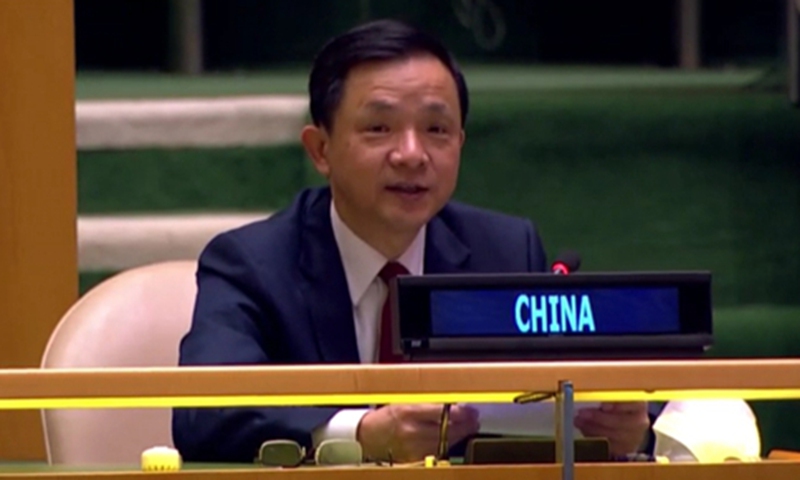
A Chinese envoy on Thursday called on all Somali parties to keep up the momentum, strengthen dialogue and unity, and stay committed to resolving differences through dialogue.
In remarks at the UN Security Council briefing on Somalia, Dai Bing, China's deputy permanent representative to the United Nations, noted that in recent years, Somalia has made important headway in national reconstruction and peace and security, and both the UN and African Union (AU) missions have entered a critical transition period.
"At this important stage, the support and assistance of the international community cannot relax," Dai said.
He emphasized three points -- maintaining the overall situation of political stability; strengthening the foundation of security transition; and advancing UNSOM (UN Assistance Mission in Somalia) transition in an orderly manner.
Underscoring that the Somali federal government has maintained communication with the governments of federal member states and reached important consensus on the constitution, elections, and political parties, the ambassador said, "We expect all Somali parties to keep up the momentum, strengthen dialogue and unity, and stay committed to resolving differences through dialogue."
He stressed that China has consistently supported the efforts of the Somali government to safeguard national unity, sovereignty, and territorial integrity, and called on the international community to support the country in exploring a development path that suits its national conditions, and provide guarantees for Somalia to embark on the path of long-term and stable development.
Dai noted that in the next phase, ATMIS (African Union Transition Mission in Somalia) will transition into a new AU mission, and expressed the hope that Somalia, the AU, the UN, and others will strengthen their communication and coordination to reach consensus on new mission arrangements and to ensure the smooth progress of the relevant work.
"Under-funding is an important challenge to AU missions' mandate performance," he said, calling on the European Union and other traditional donors to maintain their funding for the new mission and continue to contribute to the security and stability of Somalia. Dai also urged the Security Council to respond to the initiative of the AU and actively study various effective options to provide sustainable and predictable financial support for the new mission.
Noting that the Somali government has repeatedly called for the transition of UNSOM to a UN country team, and has recently submitted a two-year transition proposal to the Security Council, the ambassador called on the council to use this as a base and, in line with Somalia's national development priorities, adjust and streamline UNSOM's mandate, with a view to ensuring a smooth and orderly transition.
"China supports the peace and development process in Somalia, as well as the enhancement of Somalia's capacity for autonomous development, counter-terrorism, and stability. We will continue to provide support to international peacekeeping operations in Somalia," Dai said.
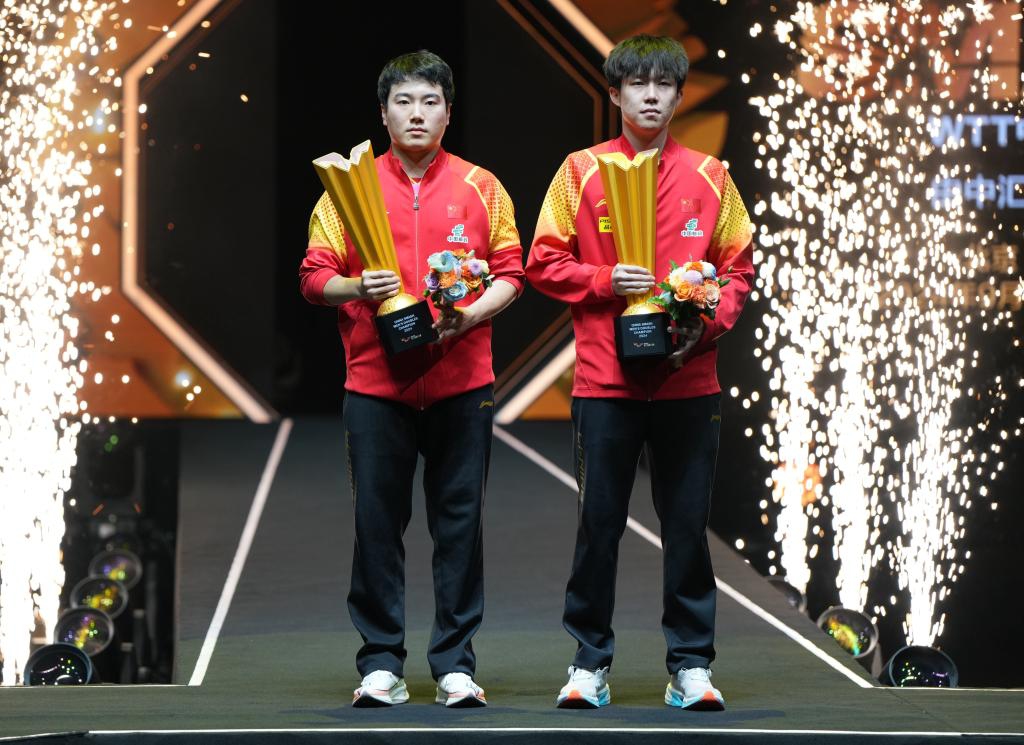
China's Wang Chuqin and Liang Jingkun rallied to clinch a five-set victory against teammates Lin Shidong and Lin Gaoyuan, claiming the men's doubles title at the World Table Tennis (WTT) China Smash on Saturday.
Meanwhile, Chen Xingtong and Qian Tianyi overcame Sun Yingsha and Wang Yidi in four sets in an all-Chinese women's doubles final.
The fourth-seeded pair Wang/Liang fought back to secure the win with scores of 8-11, 4-11, 11-6, 11-8, 11-9. "We waited a long time for the doubles title and didn't give up after being two sets down," Liang commented.
"This is my first doubles trophy pairing up with Liang at the WTT events. We kept concentrating on the skills and tactics to turn the tide," noted the 24-year-old Wang after the match.
In the women's doubles final, Chen/Qian defeated Sun/Wang 12-10, 12-10, 3-11, 11-7 to seal their victory.
The singles semifinals were played in a best-of-seven format, and China has already secured both the men's and women's singles titles.
China's most decorated Olympian Ma Long overcame third seed Liang with scores of 11-8, 11-7, 11-8, 12-10, setting up a final against 19-year-old Lin Shidong in the men's singles.
"My performance was beyond my expectations before the event. After reaching the last eight, I just felt relaxed and wanted to enjoy playing on the court. With a great mindset, I found some inspirations during the games and made some beautiful returns," said the 35-year-old Ma.
The women's singles final will be a showdown between the top two seeds - Sun Yingsha and Wang Manyu, who defeated compatriots Fan Siqi and Chen Xingtong in their respective semifinals.
The 11-day WTT China Smash, the third and final WTT Grand Smash event of 2024, will conclude on Sunday with the singles finals. The event features a prize pool of two million U.S. dollars, with champions in each of the five events earning 2,000 ITTF world ranking points.
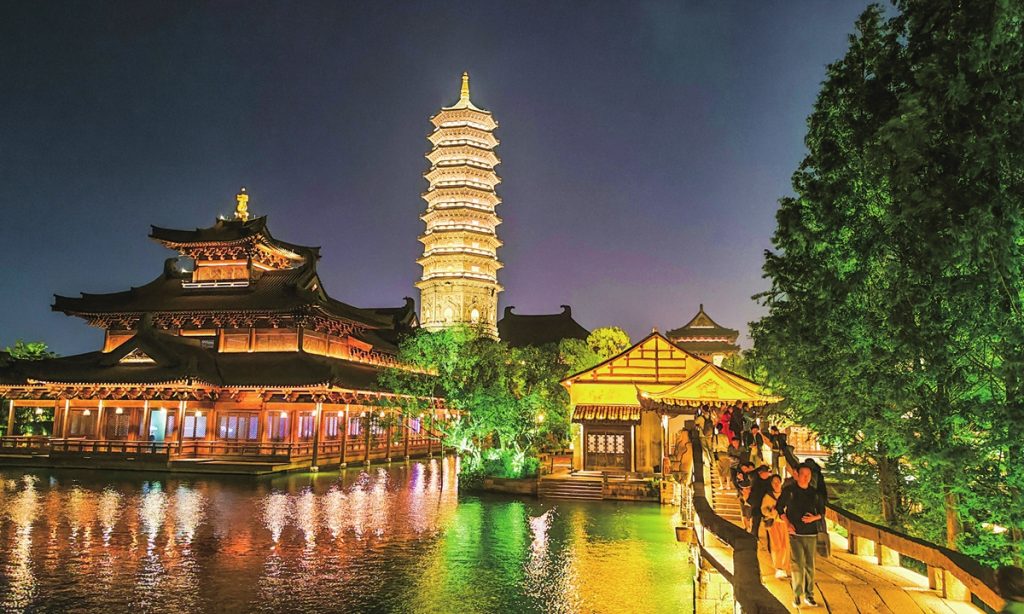
Boasting elements like stone bridges, winding rivers and elegant above-water architecture, ancient towns are highlights to the landscape of China's Jiangnan. Jiangnan is a geographic area that is commonly known as the south of the mighty Yangtze River.
Built with a touch of garden aesthetics, these towns are popular touristic destinations. Comparing to renowned sites like the Zhouzhuang Town in Jiangsu Province, the Puyuan Fashion Resort, opened to public in 2023, is an emerging spot that shows how an old rural town can sustain people's modern and fashionable lifestyles.
Old yet fashionable
Puyuan is located in Tongxiang, East China's Zhejiang Province. Its history dates back to the Southern Song Dynasty (1127-1279), and the town is one of the stops where the Beijing-Hangzhou Canal flows through.
To promote the protection of the ancient canal culture heritage, in 2016, a renovation project was carried out in Puyuan, covering an area of approximately 858,000 square meters.
In order to preserve the traditional look of the town's above-water architectures, the renovation project followed the concept of "repairing old buildings by keeping their old aesthetics while also integrating new cultural and commercial elements into the town," Yao Jie, a manager of the resort, told the Global Times.
Nine well-preserved ancient bridges, including the Zong'an Bridge and the Dayou Bridge are distributed along the "H"-shaped river system of the Puyuan Fashion Resort. Many of those bridges date back to the Qing Dynasty (1644-1911).
Some of those bridges connect to inns. For instance, an owner of the Xianzi Beach Inn told the Global Times that the inn is not the biggest one in the resort, but it can offer an "authentic taste of Puyuan" as guests can see the green and clear river flowing beneath their feet just by opening their bedroom's window.
Wooden boats and shuttle buses are always available in the resort. Boats take visitors underneath the bridges' arches to arrive at notable scenic spots in the ancient town. Two popular local destinations are the Meijing Theater, founded in 1947 and offering performances of the traditional Yue Opera, and the Xiangyun Taoist Temple, a symbol of the Taoist philosophy's development in the region, built in the Yuan Dynasty (1279-1368).
The ancient town's time-honored locations are mixed with new buildings including modern hotels, performance plazas, and a visitor center that boasts a T-stage venue for fashion shows.
Puyuan, where the resort is located, is one of China's most dynamic centers for fashion production, especially in the cashmere and knitwear sectors. Around 700 million sweaters made in Puyuan are sold worldwide every year.
Relying on the Town's solid foundation in the clothing industry, the resort has found its niche character of promoting shows and exhibitions that connect to the international market.
One of its strategies is to collaborate with the entertainment industry. It has invited highly popular reality shows such as Funny Team 2024 to film at the resort. In the show, Chinese stars such as Na Ying and Huang Zitao run around the resort, taking audiences on a visual journey around Puyuan's beautiful scenic spots.
In 2023, the resort organized a successful campaign in collaboration with the Chinese version of the fashion magazine Gentlemen's Quarterly, also known as GQ. By having superstars such as Fei Xiang (also known as Kris Phillips, is a Chinese-American pop icon and musical singer) posting photos of the resort, the fashion title of the ancient town was accentuated.
"There are many ancient towns in China, and we need to give them unique themes to make them stand out. This is the creative strategy we need to promote Chinese ancient towns," Xiao Junfu, a marketer of the touristic industry, told the Global Times.
Niche interests
Other than Puyuan, the Wuzhen Town and Xitang Town, two ancient water towns nestled in Jiaxing, East China's Zhejiang Province, have also embarked on a journey of remarkable transformation.
Wuzhen Town, whose roots trace back over 1,000 years, found a way to bridge the gap between past and future. Its once quiet canals, lined with Ming Dynasty (1368-1644) and Qing Dynasty (1368-1644) buildings, became the stage for a new kind of digital dialogue: the town's transformation began with its establishment as the permanent home of the World Internet Conference, cementing its role as a digital pioneer.
But it was the birth of the Wuzhen Theatre Festival in 2013 that truly brought Wuzhen's spirit into full bloom. The event integrated Wuzhen's historical landscape with cutting-edge theater, making the town a beacon of artistic and cultural exchange.
A few kilometers away, Xitang Town embarked on its own revival journey. Originally created back in the Spring and Autumn Period (770BC-476BC), the town still thrives nowadays thanks to its own unique cultural initiatives. For example, the Xitang Hanfu Culture Week showcases not only the town's past but also its deep connection to Chinese tradition. During the week, people dress in elegant Hanfu attire strolling through the streets, bringing the past vividly to life as workshops and parades make the town a living museum of ancient fashion.
The Xitang Ancient Town Protection Regulations of Jiaxing City released in 2023, further promote the construction of an ecological cultural tourism zone and the integration of ancient town culture and tourism, while continuing to protect the cultural heritage and traditional architecture of the ancient town.
Together, the Wuzhen and Xitang water towns breathe a new life, exemplary for the cultivation of a new cultural ecology in historical towns, one that honors the past while embracing the future.